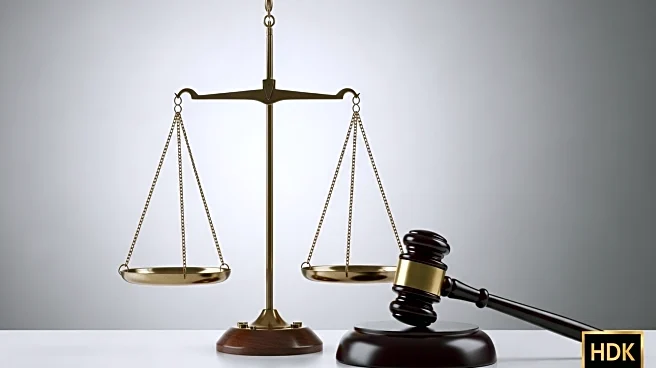What is the story about?
What's Happening?
Reyes Rigo Servia, a 56-year-old Spanish national involved in a Gaza flotilla, has been convicted by the Be’er Sheva Magistrate’s Court for assaulting a prison guard. Servia pleaded guilty to charges of assault causing bodily harm and aggravated assault, resulting in a 10-day prison sentence, which she has already served, and a NIS 10,000 fine. The court has ordered her deportation from Israel, scheduled for Saturday. Servia claims she was mistreated in custody, describing harsh conditions and alleging physical abuse by guards. The incident occurred after the Israeli navy intercepted the 'Sumud' flotilla bound for Gaza, leading to her arrest.
Why It's Important?
This case highlights ongoing tensions surrounding the Gaza flotilla movements, which aim to challenge Israel's maritime blockade of Gaza. Servia's conviction and deportation underscore Israel's strict enforcement of its border policies and legal measures against activists perceived as threats. The incident may impact international perceptions of Israel's treatment of foreign activists and its legal system's handling of such cases. It also raises questions about the conditions in Israeli detention facilities, potentially influencing future diplomatic relations and human rights discussions.
What's Next?
Servia's deportation is imminent, and her case may prompt further scrutiny of Israel's handling of foreign activists and detainees. Human rights organizations and international observers might increase pressure on Israel to address allegations of mistreatment in custody. The incident could lead to diplomatic discussions between Spain and Israel, focusing on the treatment of Spanish nationals and broader human rights concerns. Additionally, the case may influence future flotilla movements and the strategies of activists challenging Israel's policies.
Beyond the Headlines
The broader implications of Servia's case touch on the ethical and legal dimensions of activism and state sovereignty. It raises questions about the balance between national security and human rights, particularly in conflict zones like Gaza. The case may also influence public opinion and activism strategies, as it highlights the risks faced by individuals challenging state policies. Long-term, it could affect international legal standards regarding the treatment of detainees and the rights of foreign nationals in custody.















